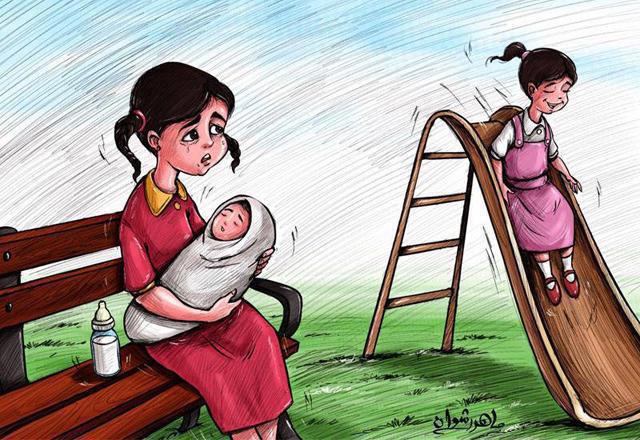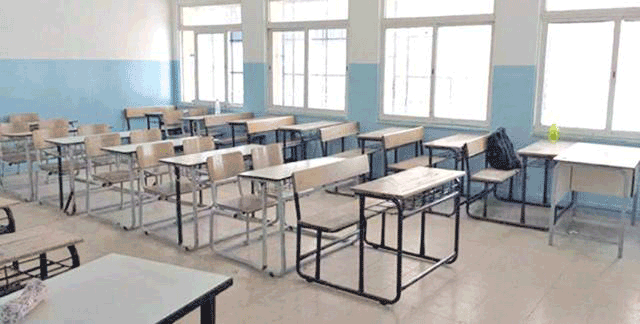You are here
‘Jordan has to constantly raise awareness about the dangers of early marriage’
By Rana Husseini - Sep 24,2018 - Last updated at Sep 24,2018
AMMAN — Minister of Social Development Hala Lattouf on Monday said work should continue to raise awareness in order to minimise the effects of early marriages in Jordan.
“We have to constantly raise awareness about the dangers of early marriage that could result in depriving the girls of education, choosing their life partner and the right for an equal marriage based on understanding and family planning,” Lattouf said.
The one-day event was organised by the Jordanian National Commission for Women (JNCW) in cooperation with the European Regional Development and Protection Programme (RDPP).
Lattouf stressed that "the Jordanian government is keen on ensuring equal opportunities and rights for its citizens and children alike”.
According to Chief Islamic Justice Department (CIJD) official statistics, there were 77,700 marriage contracts issued in 2017, of which 10,434 (around 30 a day) involved marriages in which the wife was under the age of 18.
Meanwhile, the statistics showed that cases of divorce amounted to 5,335 in 2017, in which 413 cases involved wives under age of 18.
Activists and experts have said over the years that the Syrian refugees who arrived to Jordan in 2011 contributed to rising figures of early marriages among girls.
Also addressing the gathering was JNCW Secretary General Salma Nims who stressed that the assessment study is meant to put on the table three options that legislators could consider when the draft personal status law is discussed under the dome.
“JNCW’s position is clear and we want to cancel all the exceptions that allows for the marriage of girls ages 15-18,” Nims said.
But the assessment study is committed to recommending more studies on the impact of early marriage as well as lobbying the legislators and raising society’s awareness as a whole, Nims added.
“We needed to have one paper that has all the positions with legislations in order [so] when we want to go ahead lobbying the parliamentarians, they will know the options for each position in order to show the diversity of each position,” Nims said.
The assessment study recommended three options including, cancelling the exceptions of marriage and raising the legal age of marriage to 18, or keeping the current exceptions and increasing the marriage age to 16 instead of 18.
Another recommendation included allowing the Sharia Court and Sharia judges to include provisions when tying the knot of minor females, which would only allow a maximum 15-year age difference between the husband and the wife. Provided that the would-be husband is not married, and the marriage would not prevent the girl from pursuing her education and that it would be in the best interest of the girl.
Meanwhile, Sisterhood is Global Institute's (SIGI) office in Jordan announced that it was holding a group walk event on Saturday to support all the local efforts to combat child marriage in Jordan.
The event will take place at 8:30am until 10:00am and will be held at the Sport’s City walking trail, according to a statement released to the press by SIGI.
“The idea is to encourage the youth and anyone who is interested in good health to make use of their activities by walking and at the same time raising the awareness of many issues that concerns our society,” SIGI's statement said, adding that a similar activity will be held on a monthly basis.
Related Articles
AMMAN — New regulations issued by the Cabinet on Sunday to regulate the legal age for early marriage for girls drew criticism by activists a
AMMAN — Women groups on Saturday welcomed a recent decision by the National Council for Family Affairs (NCFA) to reconstitute the national c
AMMAN — Over 90 per cent of females married under the age of 18 stated that they had to drop out of schools after tying the knot, a local st


















